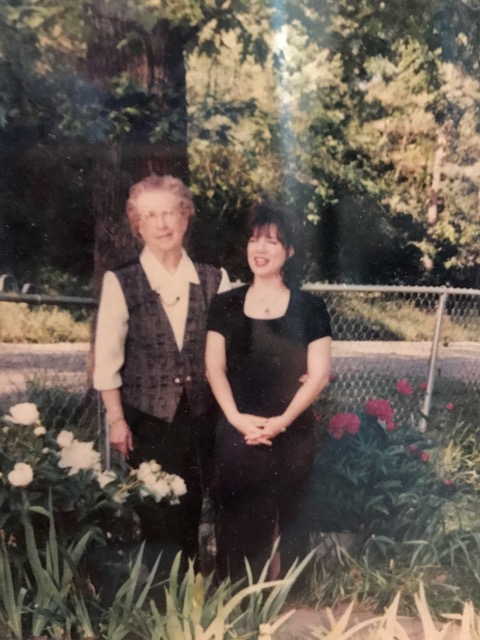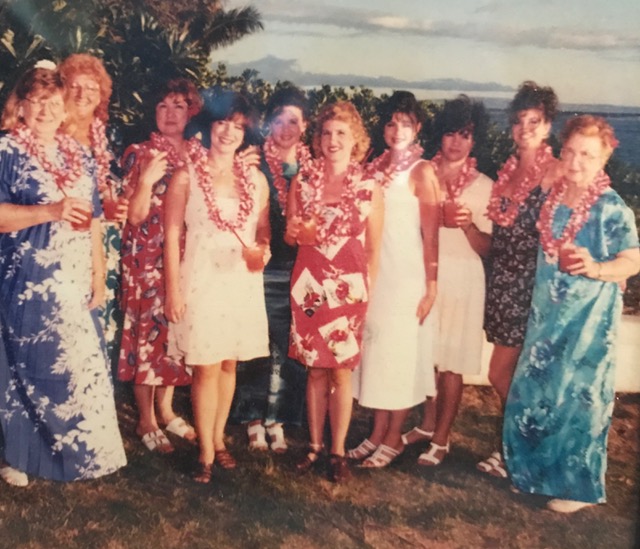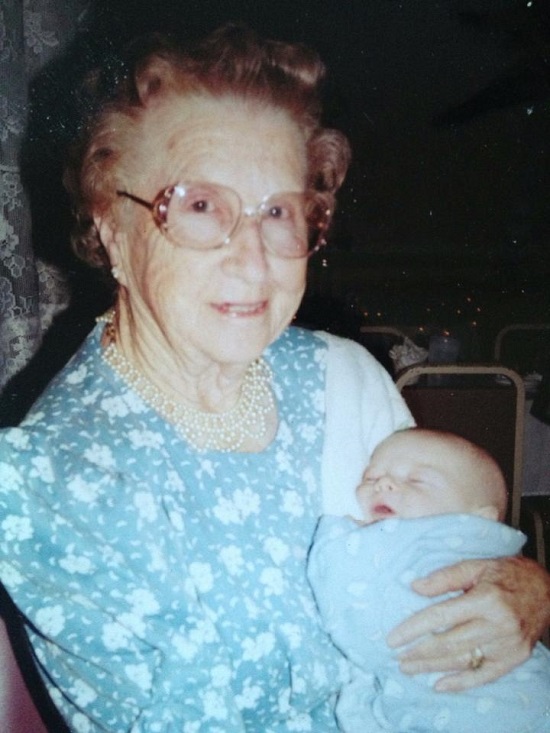By Shannon Magsam
I had a thought this morning while I zombie walked into the kitchen in search of caffeine: Today is the first day of the rest of your life.
This quote immediately conjured up thoughts of my grandmother – or Nannie, as we called her. She never walked, she bustled. She made the best chicken and dumplings. You knew she loved you, but she’d also say no without hesitation.
She’s been gone from us for 15 years, but so many things remind me of her: hummingbirds, pretty lapel pins, rummage sales, voter registration workers and chickens. And, as I just mentioned, encouraging, inspiring words.
The this is the first day sign was on the wall in the bedroom where I always slept at Nannie’s house. It was positioned right across from the headboard, so it was the first thing I saw when I woke up.
I always mulled over those words. When I got older, I understood more of the sentiment: forget past mistakes or missteps, you have a do-over today. You have a chance to get it right, starting today, so don’t waste it.
Those were not the only positive, uplifting words in Nannie’s house. She also had the Serenity Prayer (“the wisdom to know the difference”) posted in between the living room and the kitchen – plus a cross-stitched version of the Dorothy Law Nolte poem, Children Learn What They Live (copyright 1972):
If children live with criticism, they learn to condemn.
If children live with hostility, they learn to fight.
If children live with fear, they learn to be apprehensive.
If children live with pity, they learn to feel sorry for themselves.
If children live with ridicule, they learn to feel shy.
If children live with jealousy, they learn to feel envy.
If children live with shame, they learn to feel guilty.
If children live with encouragement, they learn confidence.
If children live with tolerance, they learn patience.
If children live with praise, they learn appreciation.
If children live with acceptance, they learn to love.
If children live with approval, they learn to like themselves.
If children live with recognition, they learn it is good to have a goal.
If children live with sharing, they learn generosity.
If children live with honesty, they learn truthfulness.
If children live with fairness, they learn justice.
If children live with kindness and consideration, they learn respect.
If children live with security, they learn to have faith in themselves and in those about them.
If children live with friendliness, they learn the world is a nice place in which to live.
Nannie had endured ridicule and unfriendliness as a child and I understood she wanted the buck to stop with her kids and grandkids.
Of course, there was also a huge wall hanging of the 10 Commandments from the Bible, because Nannie was encouraging, but she always encouraged you to do what was right in the eyes of God, first and foremost.
I think I got the writing bug from her. She was always reading and writing (well, when she wasn’t doing all the other things tugging at her time). I can still see her sitting down with a piece of lined paper in hand, penning letters of encouragement, a sympathy note, birthday cards. I have a stack of cards and letters she wrote to me when I was gone for a summer, traveling with a singing group. My handwriting is very similar to hers, loopy and slanted a little to the right. She also wrote a weekly roundup of what was happening in her small community for the local newspaper.
When I was a newspaper reporter, I won several Associated Press awards one year and I took Nannie to the awards ceremony in Little Rock. In a way, I wanted to honor her, too. As a child who was very shy growing up, getting teased for the unusual color of her hair, I don’t think she ever received any awards for her writing.
And: I wanted her to be proud of me.
Here we are in Nannie’s front yard before heading to the awards ceremony:

And here’s a shot in Hawaii when some of her children, and grandchildren, visited as a girl gang:

Nobody was as encouraging as my Nannie. When something good happens, I still want to pick up the phone and call her to share the news. She always loved hearing my good news.
I was thinking of her this week, remembering her life and thinking about the end. When she was at home, in the final stages of cancer, I had an idea to write a feature about her life. I checked to see if her local newspaper would publish it since she’d written for them for decades.
I interviewed friends from her quilting circle, from church, from her childhood. I discovered new things from family members. I think writing the feature helped me process my grief.
After I finished the story, I decided I to read it aloud to her. If she could hear me, I wanted to remind her of all that she had done in her life, all she had inspired, all the love she had given to so many. So I snuggled in next to her on the hospital bed — a foreign object in middle of the same living room where I’d spent so much time as a kid playing on the floor with toys or opening Christmas gifts with my cousins.
When I reached the last line of the story, I felt sure she’d heard it, every word about the scrappy country girl who grew up to have five children – and a multitude of grandchildren and great-grandchildren — and was known for inviting strangers to her dinner table.
She passed away the next day. The story detailing her life and legacy ran in the county newspaper that weekend.
I miss you, Nannie. Your words, actions and love live on in your children and down the line. On Thanksgiving, we joked that you would have been surprised to see us playing soccer, rather than our typical baseball, out in the cow pasture next to your house.
But I’m also sure you would have been smiling and cheering and saying something encouraging, like, “Today is the first day of the rest of your life. Now, kick that ball!”

